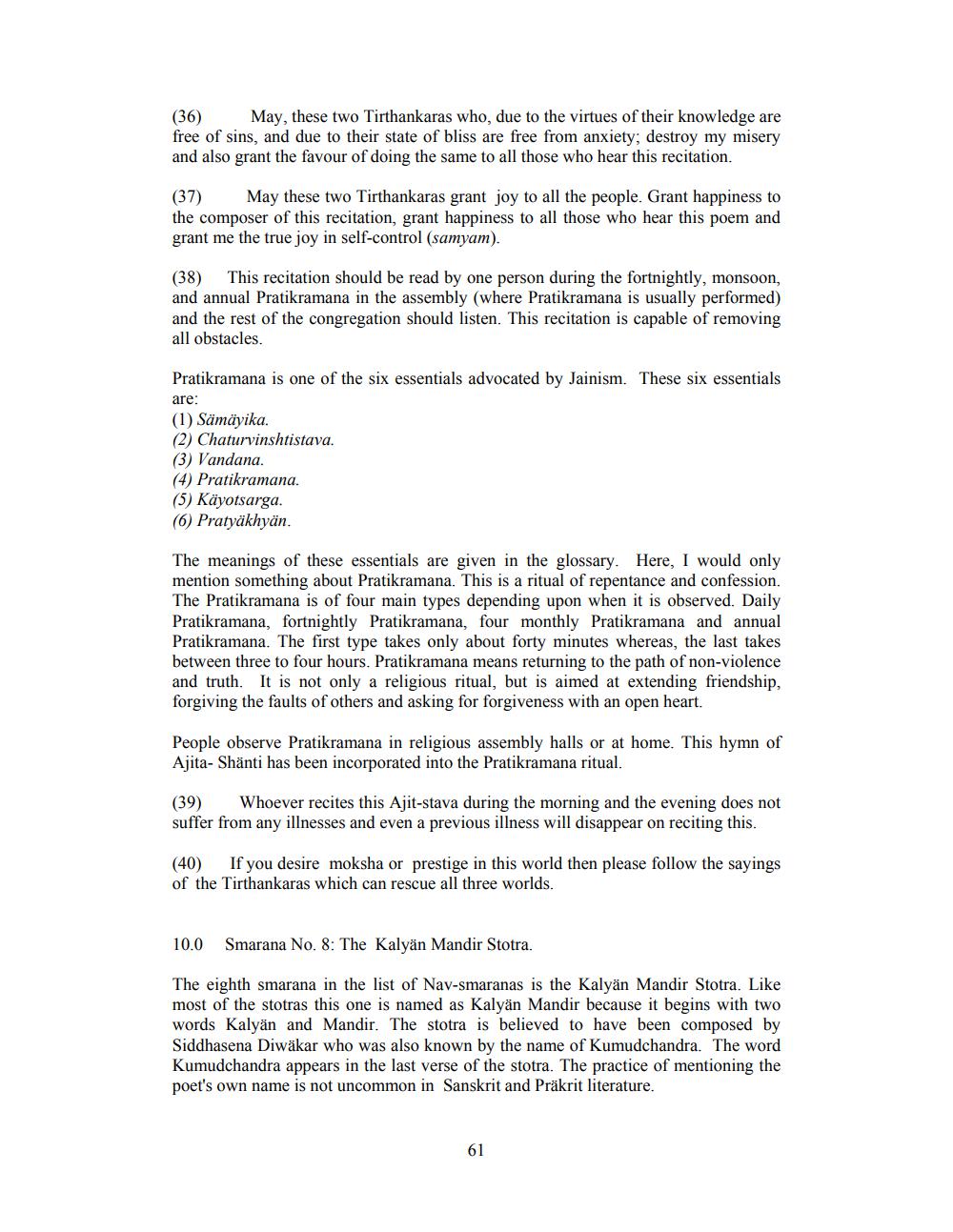________________
(36) May, these two Tirthankaras who, due to the virtues of their knowledge are free of sins, and due to their state of bliss are free from anxiety; destroy my misery and also grant the favour of doing the same to all those who hear this recitation.
(37)
May these two Tirthankaras grant joy to all the people. Grant happiness to the composer of this recitation, grant happiness to all those who hear this poem and grant me the true joy in self-control (samyam).
(38) This recitation should be read by one person during the fortnightly, monsoon, and annual Pratikramana in the assembly (where Pratikramana is usually performed) and the rest of the congregation should listen. This recitation is capable of removing all obstacles.
Pratikramana is one of the six essentials advocated by Jainism. These six essentials
are:
(1) Sämäyika.
(2) Chaturvinshtistava.
(3) Vandana.
(4) Pratikramana.
(5) Käyotsarga.
(6) Pratyäkkyän.
The meanings of these essentials are given in the glossary. Here, I would only mention something about Pratikramana. This is a ritual of repentance and confession. The Pratikramana is of four main types depending upon when it is observed. Daily Pratikramana, fortnightly Pratikramana, four monthly Pratikramana and annual Pratikramana. The first type takes only about forty minutes whereas, the last takes between three to four hours. Pratikramana means returning to the path of non-violence and truth. It is not only a religious ritual, but is aimed at extending friendship, forgiving the faults of others and asking for forgiveness with an open heart.
People observe Pratikramana in religious assembly halls or at home. This hymn of Ajita- Shanti has been incorporated into the Pratikramana ritual.
(39) Whoever recites this Ajit-stava during the morning and the evening does not suffer from any illnesses and even a previous illness will disappear on reciting this.
(40) If you desire moksha or prestige in this world then please follow the sayings of the Tirthankaras which can rescue all three worlds.
10.0 Smarana No. 8: The Kalyan Mandir Stotra.
The eighth smarana in the list of Nav-smaranas is the Kalyan Mandir Stotra. Like most of the stotras this one is named as Kalyan Mandir because it begins with two words Kalyan and Mandir. The stotra is believed to have been composed by Siddhasena Diwakar who was also known by the name of Kumudchandra. The word Kumudchandra appears in the last verse of the stotra. The practice of mentioning the poet's own name is not uncommon in Sanskrit and Präkrit literature.
61




